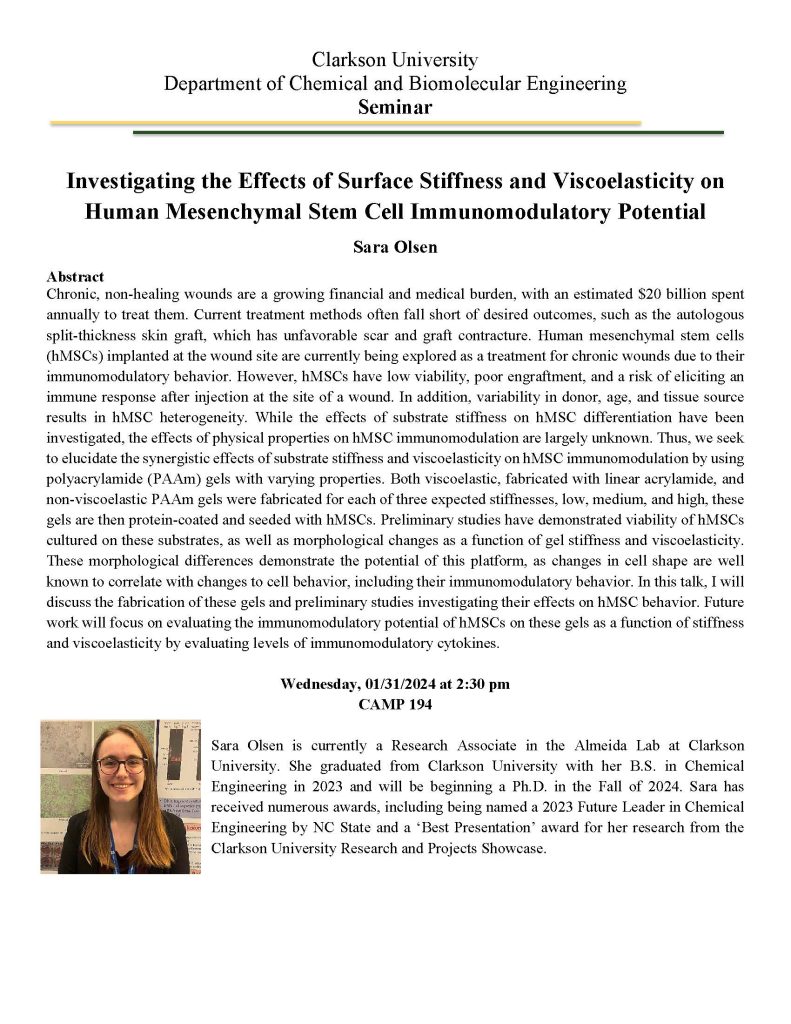
Clarkson University
Department of Chemical and Biomolecular Engineering
Seminar
Investigating the Effects of Surface Stiffness and Viscoelasticity on Human Mesenchymal Stem Cell Immunomodulatory Potential
Sara Olsen
Abstract
Chronic, non-healing wounds are a growing financial and medical burden, with an estimated $20 billion spent annually to treat them. Current treatment methods often fall short of desired outcomes, such as the autologous split-thickness skin graft, which has unfavorable scar and graft contracture. Human mesenchymal stem cells (hMSCs) implanted at the wound site are currently being explored as a treatment for chronic wounds due to their immunomodulatory behavior. However, hMSCs have low viability, poor engraftment, and a risk of eliciting an immune response after injection at the site of a wound. In addition, variability in donor, age, and tissue source results in hMSC heterogeneity. While the effects of substrate stiffness on hMSC differentiation have been investigated, the effects of physical properties on hMSC immunomodulation are largely unknown. Thus, we seek to elucidate the synergistic effects of substrate stiffness and viscoelasticity on hMSC immunomodulation by using polyacrylamide (PAAm) gels with varying properties. Both viscoelastic, fabricated with linear acrylamide, and non-viscoelastic PAAm gels were fabricated for each of three expected stiffnesses, low, medium, and high, these gels are then protein-coated and seeded with hMSCs. Preliminary studies have demonstrated viability of hMSCs cultured on these substrates, as well as morphological changes as a function of gel stiffness and viscoelasticity. These morphological differences demonstrate the potential of this platform, as changes in cell shape are well known to correlate with changes to cell behavior, including their immunomodulatory behavior. In this talk, I will discuss the fabrication of these gels and preliminary studies investigating their effects on hMSC behavior. Future work will focus on evaluating the immunomodulatory potential of hMSCs on these gels as a function of stiffness and viscoelasticity by evaluating levels of immunomodulatory cytokines.
Wednesday, 01/31/2024 at 2:30 pm
CAMP 194
Sara Olsen is currently a Research Associate in the Almeida Lab at Clarkson University. She graduated from Clarkson University with her B.S. in Chemical Engineering in 2023 and will be beginning a Ph.D. in the Fall of 2024. Sara has received numerous awards, including being named a 2023 Future Leader in Chemical Engineering by NC State and a ‘Best Presentation’ award for her research from the Clarkson University Research and Projects Showcase.